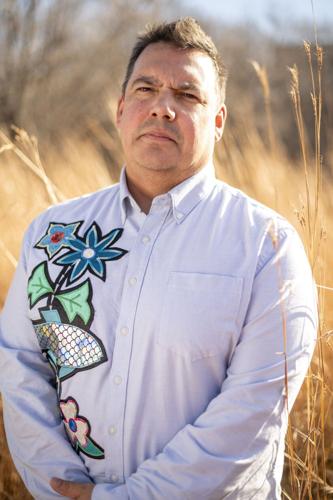When my grandfather Henry was 6-years-old, he was forced to attend residential school where he was stripped of his language, culture, dignity and endured incredible abuse. What followed were years shaped by grief, hardship, and survival.
His mental health struggles led to poor physical health, with alcoholism impacting both him and those around him. It took my grandfather many painful years to become the man I came to know ÔÇö one of strength and kindness.
In Anishinaabemowin, the word ogichidaa means ÔÇťprotector.ÔÇŁ In our culture, this is defined not by the stereotypical warrior who conquers, but a man whose heart shelters others and one who carries medicine, knowledge and love wherever he goes. This is the form of masculinity we must promote to combat the shame and fear that Indigenous men ÔÇö and all men ÔÇö endure.
Stigma and the fear of appearing weak prevent the majority of Canadian men from seeking help when needed. For Indigenous men, these barriers are even greater, intensified by historical trauma, systemic racism, and a lack of culturally safe spaces.

Niigaan Sinclair’s Grandpa Henry.
Supplied PhotoAs a result, Canadian men continue to experience disproportionately poor health outcomes. New data from the Movember Institute of MenÔÇÖs Health will die prematurely from largely preventable causes. This rate more than doubles among Indigenous men, who also face some of the highest suicide rates in the country.
To address this, we need to align governments, health systems, and health care organizations around gender-responsive care. This must also include health care frameworks and policies that fully integrate Indigenous knowledge, languages, and cultural understandings of gender and sexuality.
Canada needs culturally grounded, community-led programs created with Indigenous men, not just for them.
This begins with genuine partnerships to co-design mental health campaigns that reflect their lived experiences and the specific barriers they face in navigating the health care system. These initiatives must be proactive rather than reactive, based on building healthy experiences of identity and kinship, and fostering a sense of protectorship that is rooted in love.
To do so, we can look to examples of programs led and co-led by Indigenous communities, elders, and knowledge keepers who understand both historical trauma and the relevancy of traditional practice. 
These efforts must also extend into how care is delivered. Health systems across provinces and territories need to integrate Indigenous healing practices, in alignment with the  22nd call to action. For generations, elders, healers, and traditional knowledge holders have guided the wellness of Indigenous Peoples. Indigenous patients deserve access to care that honours our traditional ways of knowing, being, and healing. 
Sustained investment in Indigenous-led research that tracks not only challenges, but opportunities for resilience and recovery would strengthen this foundation. The Canadian government must work alongside Indigenous communities and organizations to track key health indicators. This requires partnering competent researchers with Indigenous leadership who understand the traditionally held roles of Indigenous men and the possibilities that rebuilding these roles can inspire.
Equally important is the right of Indigenous Peoples to own our data, tell our stories, and define our own futures. As seen in several examples on the prairies and throughout Canada, Indigenous communities know what is best for Indigenous healing, so decisions on the interpretation and use of data must include Indigenous stakeholders and be in the interests of rebuilding Indigenous families, communities, and nations.
A large part of improving health outcomes in Indigenous men is to build trust with institutions that have historically contributed to much harm in Indigenous communities, particularly the health care system. If we are serious about equity and reconciliation, then we must invest in health policies and changes that involve listening, collaborating, and creating space for Indigenous voices to lead.
To change the trajectory of men’s health in Canada, we must stop treating Indigenous men as statistics in crisis and start seeing them as partners in healing, strength, and renewal.




























To join the conversation set a first and last name in your user profile.
Sign in or register for free to join the Conversation